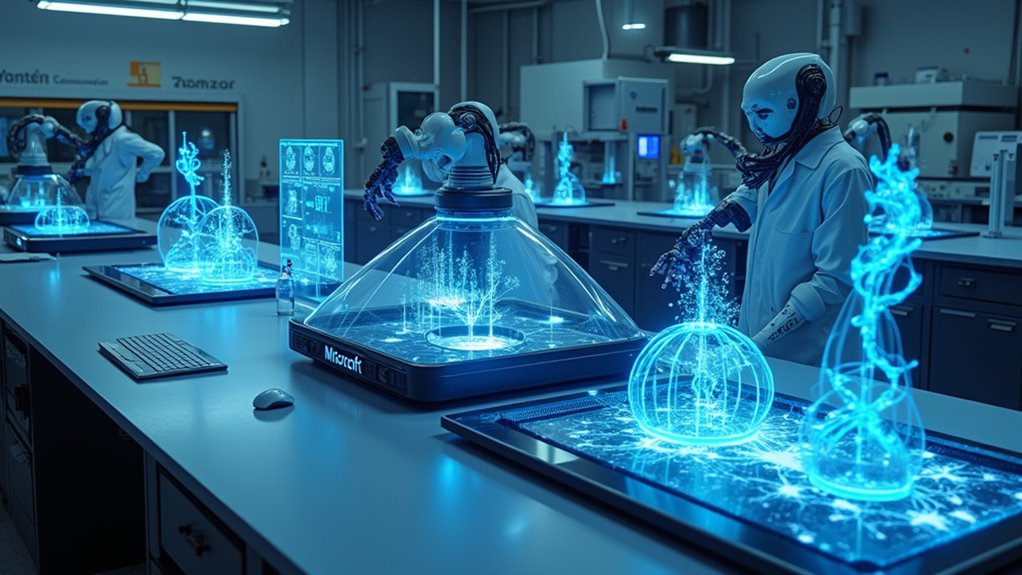The AI hiring arms race is creating winners and losers across the job market. While tech hubs like California and New York feast on 2,000+ AI job postings each, rural areas starve for opportunities. Young workers (18-24) are panicking—they’re 129% more likely to fear AI-driven job loss. Meanwhile, companies scramble to hire prompt engineers and ethics leads, with 83% of businesses making AI a strategic priority. Turns out, the future of work might depend on your zip code and birth year.
While technological evolution has consistently reshaped workplaces throughout history, nothing quite compares to AI’s meteoric rise in the hiring landscape. With AI-related positions now representing over 9.5% of all software development jobs, we’re witnessing a gold rush where companies scramble to stake their claim in the digital frontier.
The numbers tell a sobering story. Major U.S. banks expanded AI hiring by 13% in just six months, while job postings peaked at 22,000 before settling around 17,000. It’s like watching the housing market cool off—except instead of McMansions, we’re talking algorithms that might take your job.
AI hiring is booming, then cooling—like a housing market where the properties might eventually replace you.
And there’s the rub. Up to 300 million jobs globally could vanish to automation, with 14% of workers already shown the digital door. If you’re young, you’re especially nervous—those aged 18-24 are 129% more likely to worry about AI-driven job loss than their retirement-eligible counterparts. Must be nice to have Social Security as a backup plan, right?
The geographical distribution reads like a tech industry greatest hits album: California, Texas, and New York dominate with over 2,000 AI job postings each. Meanwhile, rural regions are left wondering if the AI revolution will ever reach their zip code. In advanced economies, 60% of jobs are at significant risk of being replaced or fundamentally altered by artificial intelligence.
Not all news is doom and gloom, though. AI is creating entirely new career paths—prompt designers, ethics leads, and AI engineers are now legitimate career aspirations.
Translation and localization industries experienced a 59% spike in AI job postings, proving that robots need cultural sensitivity too.
The transformation extends beyond tech-centric fields into traditional industries. Marketing and professional services saw a staggering 237% rise in AI-related postings.
McKinsey projections suggest that AI could generate 4.4 trillion dollars in productivity growth, fundamentally altering not just who gets hired but how work itself is structured.
Even photographers are getting in on the action with a 51% jump in AI roles. Apparently, teaching algorithms the rule of thirds is the new darkroom technique.
For better or worse, AI’s role in hiring reflects our broader technological moment—exciting, terrifying, and utterly inevitable. The question isn’t if AI will transform work, but how quickly we can adapt when it does.
With 83% of businesses now making AI a strategic priority, companies that fail to integrate these technologies risk falling behind competitors in both innovation and efficiency.









